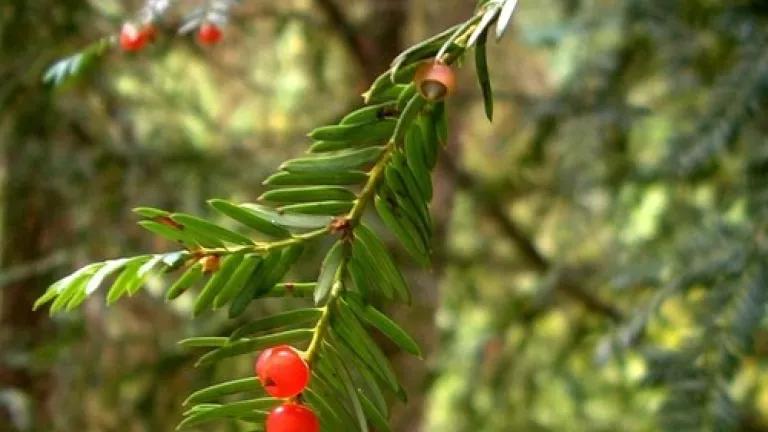The Importance of Plants: Global Warming Threatens Plant Communities, What Life Saving Medicines Will Be Lost?

Environment 360 reports: "A new study says that a warming climate is having a more profound effect on the world’s mountain vegetation than previously believed and that some alpine meadows could vanish altogether within a few decades." What many people fail to realize the profound importance that maintaining a diversity of plants has for human health. Namely, finding new cures for disease.
Plants communities are particularly vulnerable to climate change, as they obviously cannot migrate as quickly as most animal species. And mountain-top species are also at high risk as they are adapted to cold whether and, often, effectively trapped on "sky islands." This vulnerablilty is well illustrated by the whitebark pine, a fast disappearing species of tree that NRDC is working to conserve.
This is no minor issue. It directly concerns every person alive today. Between 25-50% of modern medicines are derived from plants. Indeed, of the top 150 prescribed drugs in the United State nearly 60% were originally derived from plants. We're talking about drugs we all take for granted, like digitalis, which treates heart disease (foxglove), and l-dopa, which is used to combat Parkinson's (vanilla bean), as well as cancer treatments, such as taxol (derived from the Pacific Yew tree). You can read more about the medical value of plants here.
That's why when Congress passed the Endangered Species Act in 1973 it wrote:
Who knows, or can say, what potential cures for cancer or other scourges, present or future, may lie locked up in the structure of plants which may yet be undiscovered, much less analyzed?. . .. Sheer self-interest impels us to be cautious.
Who knows, indeed? But one thing is for sure, preserving diverse plant communities is essentail to all of us.

